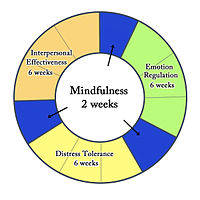
Photo from wikipedia
OBJECTIVE Even though the early alliance has been shown to robustly predict posttreatment outcomes, the question whether alliance leads to symptom reduction or symptom reduction leads to a better alliance… Click to show full abstract
OBJECTIVE Even though the early alliance has been shown to robustly predict posttreatment outcomes, the question whether alliance leads to symptom reduction or symptom reduction leads to a better alliance remains unresolved. To better understand the relation between alliance and symptoms early in therapy, we meta-analyzed the lagged session-by-session within-patient effects of alliance and symptoms from Sessions 1 to 7. METHOD We applied a 2-stage individual participant data meta-analytic approach. Based on the data sets of 17 primary studies from 9 countries that comprised 5,350 participants, we first calculated standardized session-by-session within-patient coefficients. Second, we meta-analyzed these coefficients by using random-effects models to calculate omnibus effects across the studies. RESULTS In line with previous meta-analyses, we found that early alliance predicted posttreatment outcome. We identified significant reciprocal within-patient effects between alliance and symptoms within the first 7 sessions. Cross-level interactions indicated that higher alliances and lower symptoms positively impacted the relation between alliance and symptoms in the subsequent session. CONCLUSION The findings provide empirical evidence that in the early phase of therapy, symptoms and alliance were reciprocally related to one other, often resulting in a positive upward spiral of higher alliance/lower symptoms that predicted higher alliances/lower symptoms in the subsequent sessions. Two-stage individual participant data meta-analyses have the potential to move the field forward by generating and interlinking well-replicable process-based knowledge. (PsycInfo Database Record (c) 2020 APA, all rights reserved).
Journal Title: Journal of consulting and clinical psychology
Year Published: 2020
Link to full text (if available)
Share on Social Media: Sign Up to like & get
recommendations!